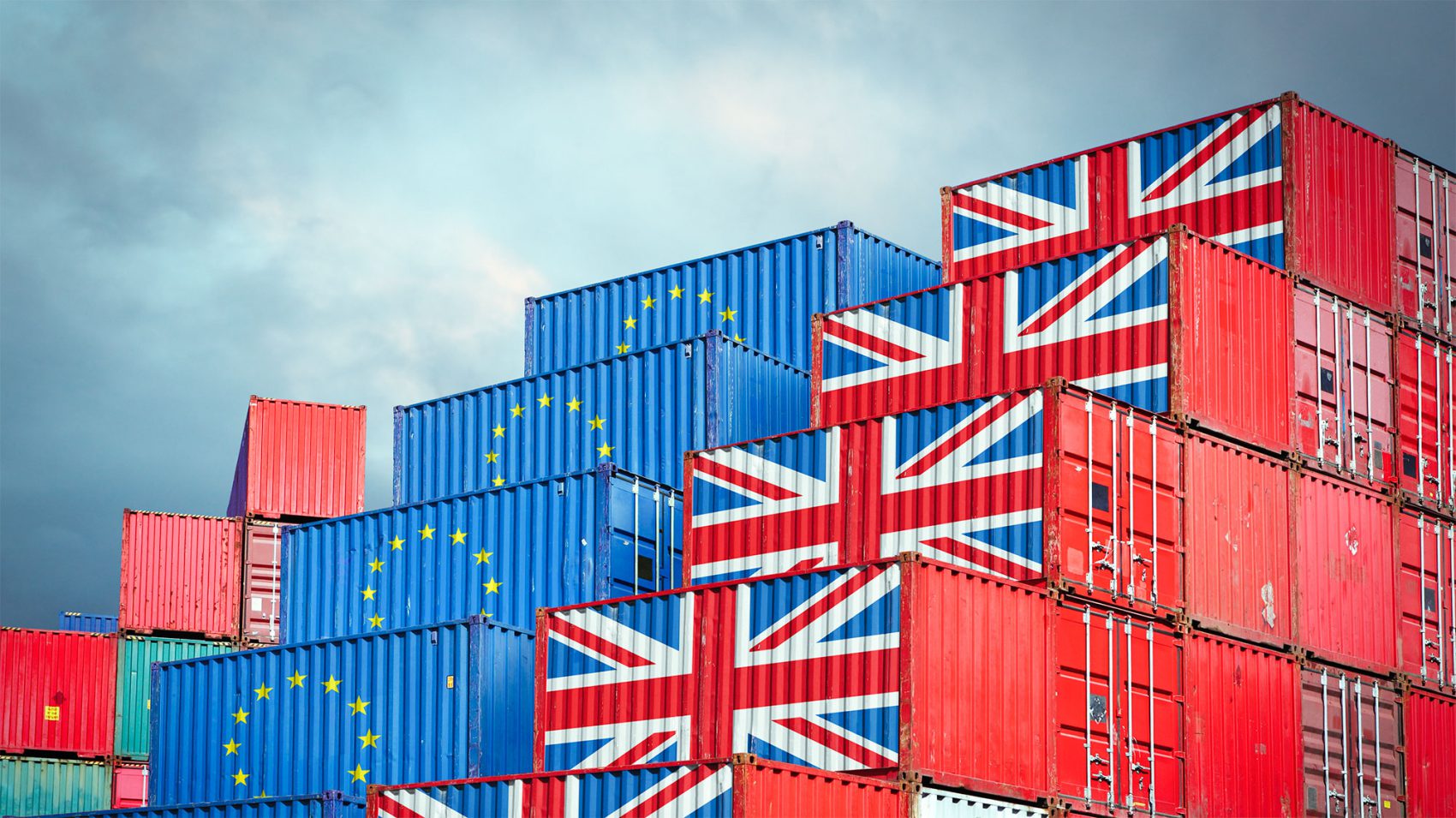The European Union and the United Kingdom (UK) have reached agreement on a new partnership. Although this deal is a great help, the way we do business with the UK will change regardless.
The UK (England, Scotland, Wales and Northern Ireland) is no longer part of the EU. Formally, this has already been the case since midnight, 31 January 2020, but mutual agreements provided for a transition period until 31 December 2020 that meant virtually nothing had changed for business and citizens.
The trade agreement concluded between the EU and the UK on 24 December 2020 has entered into force provisionally with effect from 1 January 2021. While this agreement arranges a number of important matters for mutual trade, the way we do business with the UK nevertheless changed with effect from 1 January 2021 because business and citizens are now also faced with the fact that the UK has left the EU.
We would like to list a number of important changes for you below. Naturally, VanLoman is more than happy to map these changes for your business and to help further implement the changes.
Customs formalities
Every movement of goods from the EU to the UK and vice versa is seen as the export and import of those goods, and thus is accompanied with the associated formalities. If your business sells goods to customers in the UK, for example, that sale from the Netherlands qualifies as an export sale and you or your customer must then import the goods into the UK. This does not only trigger new tax considerations, but more importantly can effect commercial negotiations.
In order to transport goods to and from the United Kingdom, your company will need an Economic Operator Registration and Identification (EORI) number. The goods must be reported to Dutch and British Customs authorities. If you have a representative in the UK who will do this for you, check whether they have a British EORI number. If that person does not have an EORI number or if you will declare the goods yourself, make sure that you also have a British EORI number.
Depending on the type of goods (and associated commodity code), you may have to pay customs duties. The free trade agreement that entered into force between the EU and the UK as from 1 January 2021 has reduced the import duties applicable when importing goods into the EU or into the UK. This reduction (to 0) is subject to the condition that the goods in question are of preferential EU or UK origin.
Changes do not only occur when you sell goods, but also when you send your employees to the UK to perform work there; in that case, you must consider not only work permits, but also the formalities for importing – even temporarily – the necessary tools and parts. VanLoman can help you understand these formalities.
Import VAT
Importing goods, whether from the UK into the EU or into the UK from an EU Member State, also creates the liability to pay import VAT. The basic principle is that this VAT is payable immediately at the border and that business owners can later recover that VAT on their regular VAT returns. In the Netherlands, a VAT deferment license within the meaning of Article 23 of the Dutch Turnover Tax Act may result in cashflow benefits in the event of frequent imports. Such a license releases the holder from the obligation to pay VAT immediately at the border. Your business can then report the VAT owed in the VAT return and immediately deduct the VAT in that same return, effectively without first having to pay to the Tax Authorities.
VAT registration
Because the UK is no longer an EU Member State, you are no longer able to use EU systems for British VAT returns pertaining to periods in 2021 as of 2021. For example, the rules of the mini one stop shop (MOSS) return no longer apply to sales taxable in the UK. Thus, if your company provides electronic services to private individuals in the UK, it will require a new local VAT registration, for which you must also regularly file VAT returns in the UK.
Similarly, the EU rules for distance sales no longer apply for deliveries to the UK, meaning any sale and supply to a private individual in Britain from the EU now qualifies as an export, for which you or the private individual will have to import the goods into the UK. Furthermore, specific rules have been introduced which provide that any sale from the EU to private individuals in the UK worth less than GBP 135 must always be treated as a local supply of goods (taxable with UK VAT in the UK). In that case, you will likely need your own VAT registration in the UK to account for VAT on such sales. VanLoman will gladly help you assess to what extent your current general terms and conditions have to be adjusted to accommodate this situation.
Reclaiming VAT
As from 1 January 2021, filing a request for refund of EU VAT (e.g. Dutch VAT) by business owners in the UK is being treated as an application for VAT refund within the meaning of the 13th Directive. The processing time for such applications may be substantially (up to 6 months) longer as a result.
If you wish to reclaim UK VAT for the year 2020 as a Dutch business owner, you can still do so via the regular EU VAT Refund Portal in the Netherlands until 11 p.m. on 31 March 2021. For after that date and for VAT charged after 2020, the UK has introduced a manual VAT reclamation process.
More information? download our whitepaper here
